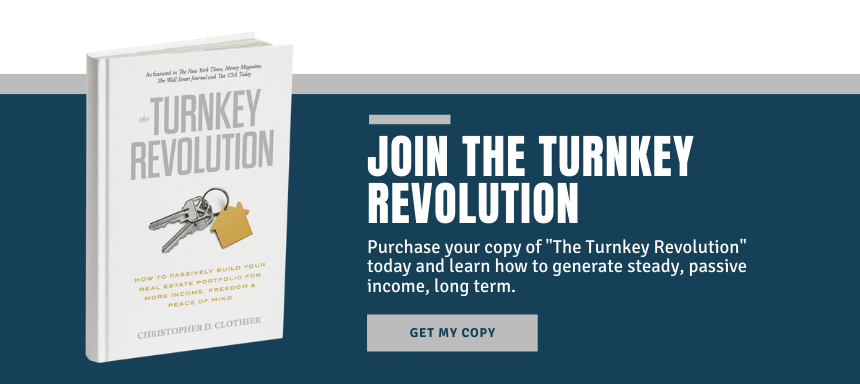 Nothing is more important in real estate investment than due diligence. It’s that attention to detail, that dedication to taking the steps to ensure that you have done everything in your ability to protect your investment and your cash flow. Without due diligence, you expose yourself to untold risk and the possibility of losing your investments altogether.
Nothing is more important in real estate investment than due diligence. It’s that attention to detail, that dedication to taking the steps to ensure that you have done everything in your ability to protect your investment and your cash flow. Without due diligence, you expose yourself to untold risk and the possibility of losing your investments altogether.
Due diligence is hugely important in the real estate investment conversation, but turnkey real estate investors can largely feel left out. After all, they’re passive investors. What exactly can they do to protect their investments? Aren’t other people taking care of that stuff for them?
Turnkey real estate investors do have a huge advantage: many of the details of due diligence are taken care of for them by their turnkey providers and property managers—but that doesn’t mean that they are exempt from doing their due diligence!
These are a few things every turnkey real estate investor must do to mitigate their risk and maximize their cash flow.
-----------------------------------------------------------------------------
You can pre-order your copy of The Turnkey Revolution, the first book release from Memphis Invest chronicling the best advice on how to safely build a passive portfolio from real investor experiences!
--------------------------------------------------------------------------------------------
5 Must-Do Due Diligence Tasks for Turnkey Investors
Know your turnkey provider.
Not all turnkey real estate providers are created equal. Some are wonderful. Others, not so much. It’s so important for any investor, before they buy a property from any provider, before they begin a partnership or any sort of relationship with a provider, that they do everything in their ability to really get to know them. That means looking at testimonials. Search their reputation from outside sources. Talk to experienced investors. Ask the provider tough questions. Request documentation. Are they providing property management? What kind of financing options do you have? What returns can you reasonably expect?
These are just some of the questions that are pertinent for an investor to ask. Remember—it’s your money and your financial future. Don’t be afraid to ask questions.
Inspect before you buy.
Turnkey properties are great because they are, in concept “turn the key,” and start earning passive income. As the owner of a turnkey property, you don’t have to worry about renovations and doing any of the heavy lifting that another investor would.
However, you are still buying a property. And as someone buying a property, even a turnkey property, it’s still diligent to get that property checked out! Because turnkey investors are often buying out-of-state, it’s up to you to have the property inspected by someone and to get all of the right documentation from your provider to make sure it all checks out. Remember: just because it’s turnkey or renovated doesn’t mean it’s perfect.
Know the markets you want to invest in.
One of the biggest advantages a real estate investor can have is on their home turf. If you know your market, you can really have a leg up. Someone investing out-of-state, however, doesn’t have to be left at a disadvantage. You can do your due diligence here, too: pay attention to the news, numbers, and keep up with what’s going on in the economy in any market that you wish to invest in.
It will help you anticipate market fluctuations, shifts in rental demand, and know what prices to expect when buying and selling properties. The more informed you can be about your market, the better.
Related Article: The Best Plan for Successful Out-of-State Real Estate Investing
Be invested in your investments.
There’s always a temptation for passive real estate investors to be a little too passive. As a passive real estate investor, you still have to know what is going on with your investments. As part of your due diligence, take advantage of the resource you have in your property management team and your turnkey provider. Ask questions when you have monthly check-ins. Have conversations. Build relationships.
There’s no reason for you to keep yourself distant from your investments. Though you don’t have to sweat the big stuff, if you’re engaged, you’re going to find yourself more equipped to succeed. Period!
Have a strategy.
Lastly, part of protecting your investment future is just having a game plan. Are you being diligent about your future? Are you saving money in case of any eventuality? Saving so you can scale your portfolio? Do you know how many properties you want to acquire this year? When you have these goals solidified in your mind, you’re going to be able to know how to handle situations and make decisions based on those goals. Ultimately, having a strategy sets you up for where you want to be, which is more effective than a “wherever the wind takes us” approach to investing.
Turnkey, though passive and not demanding of too much time and attention does demand some level of planning and it definitely demands your due diligence!
Ready to get started with turnkey investing?













